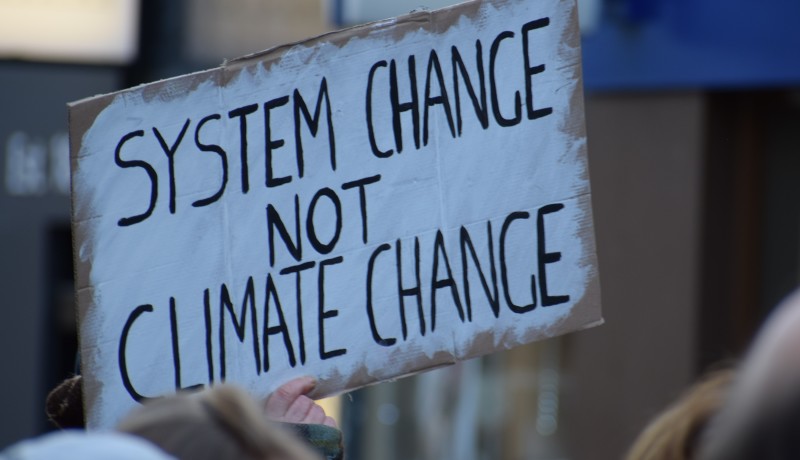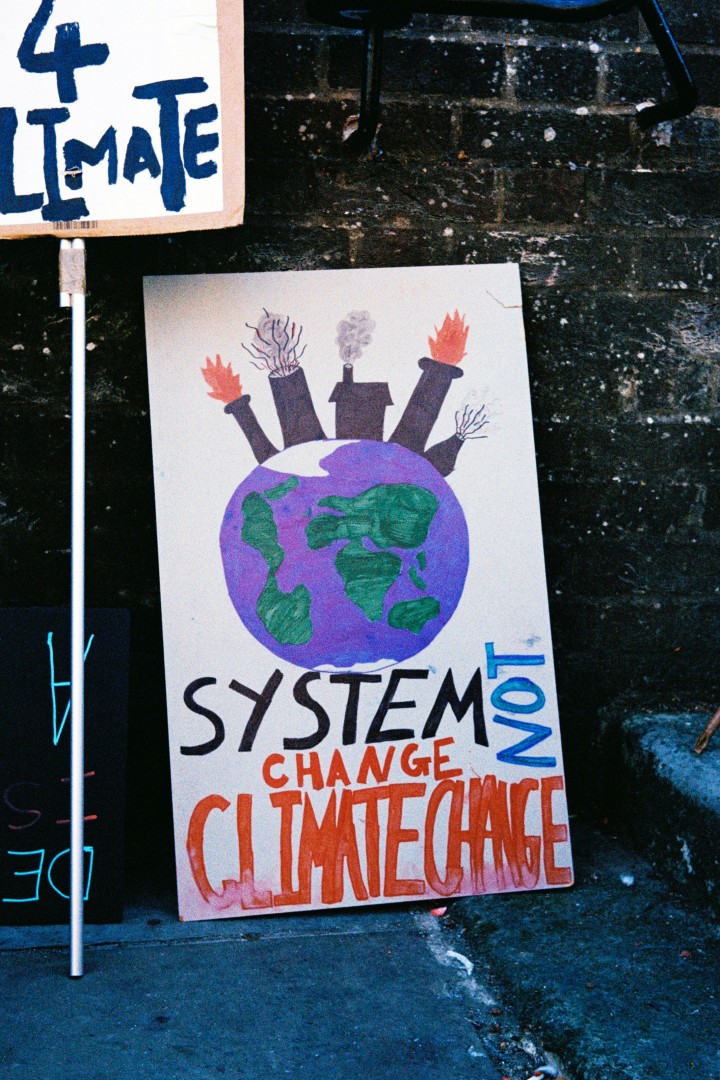System Change, Not Climate Change
on


Following the 2018 the IPCC report, “Global Warming of 1.5°C,” that De Conick co-authored, the BBC tweeted: “Climate report: Scientists politely urge ‘act now, idiots’.” In this report, the key message was that we could still limit exceeding 1.5° of warming by 2040. Now the message is that we must limit exceeding 1.5° of warming expected in 2030. We are currently at 1.1° of global warming and we are all experiencing the changing weather. Our timetable has sped up.
To achieve climate neutrality in 2050 (European Climate Law), we will need CO2 neutrality already in 2040, says De Conick. We cannot achieve this by “implementing a list of technologies.” Instead, we need system transitions. Engineers define systems by their technological parts while social scientists include institutions and norms. A renewable energy system needs a different grid but also new laws on electricity as users become producers. The innovation we need has a social side. Businesses will have to reinvent themselves or disappear.
Six to Accelerate
In her speech, professor De Conick explains that we can enable this system change by addressing six conditions that amplify each other:1. Multilevel governance
2. Institutional capacities
3. Behavioral change
4. Technological innovation
5. Policy instruments
6. Finance
Multi-level governance requires all layers to be involved. We need more collaboration and less “inefficient competition” to align all actors across public/private layers and to support system change.
We need people in Institutional capacities that are climate-educated and technology-savvy. “We need engineers” and qualified facilitators and policy makers to accelerate and guide necessary system change.
Behavior change can reduce emissions at the demand-side by 40%, but it is challenging to shift norm behavior. But when it does, public support and voting behavior also changes which in turn influences policy which in turn influences behavior.
“Even though all of them are important, you still see that Technology and Policy instruments (such as price points, subsidies and tax breaks) in particular are popular with decision-makers. As tempting as it is to believe in technology as the only solution, I think that is it’s short-sighted to focus on that alone. It has to go hand in hand with ways in which the technology can and will be implemented. And it has to be just for all those involved in the development-production-distribution-recycling chain.” Working on the other four pieces of the enabling puzzle might create “much more rapid changes that maybe we can imagine now.” While we can believe in technology and must encourage innovation with policy, we should not rely solely on it.
Finance is currently a barrier to system change rather than an enabler. However, the industry has a herd mentality that will likely turn into an accelerator of system transitions once the first financial players have had success. (Author’s note: This is currently happening with investments in large renewable energy projects.)
Professor de Conick does believe we can still make this happen. Adaptation and mitigation need to happen together. Big and pervasive changes need to come from the high-emitting countries. A change is going to come.
You can read more about her research and see the entire inaugural speech here.
About the Author
Priscilla Haring-Kuipers writes about technology from a social science perspective. She is especially interested in technology supporting the good in humanity and a firm believer in effect research. She has an MSc in Media Psychology and makes This Is Not Rocket Science happen.

WEEF 2022
The World Ethical Electronics Forum (WEEF 2022), which is slated for November 2022, will build on the momentum from last year's event, where Elektor engineers and other thought leaders discussed ethics and sustainable development goals. Over the next few months, Elektor will be publishing thought-provoking, ethics-related articles, interviews, and polls. Visit the WEEF 2022 website for additional details.



Discussion (0 comments)